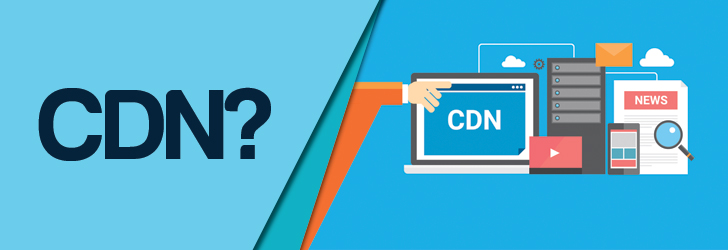
A Content Delivery Network (CDN) is a geographically distributed network of servers working together to provide fast delivery of web contents. Use of CDN makes the webpage load faster by transferring web contents including HTML pages, JS, CSS, Images and even video files from the distributed servers geographically closer. Some of the most popular javascript libraries, fonts and CSS frameworks are hosted on public CDNs, and utilizing such CDNs for your web pages will improve your site performance. Use of CDN may also help protect your website from DDoS attacks.
What are the benefits of using a CDN?
There are a few benefits you can gain from using CDNs whether they are public CDN or your private CDN delivering static contents. Your mileage may vary depending on the amount of traffic that is delivered via a CDN, and how much traffic you generate.
- The primary benefit of using a CDN is improving site performance by loading static contents faster. Some of the popular JS libraries such as the jQuery and Angular JS; and CSS such as the Twitter Bootstrap framework can be served from a public CDN. By serving contents from CDNs, visitors will experience faster load time as the contents will be served from a nearby CDN server if public CDN is used.
- If you're using contents from public CDNs, you'll reduce network traffic to your server and hence save cost on network bandwidth. The cost of network traffic has gone down significantly in recent years, so it may not be a money-saving but you'll reduce traffic to your server and the server will respond faster.
- By offloading common content delivery to CDNs, your server has less to serve and improves web security. The CDN providers are large enough to mitigate DDoS attacks, and improve traffic availability.
Public CDNs
Site speed is crucial in retaining visitors, and keep them on site. We all know that having a slow website loses visitors as consumers aren't patient enough to wait for contents to render on slow websites. This is the reason why the websites are loading faster today and every webmaster are working diligently to improve their site performance. One of the tactics used is the use of public CDNs. There are hundreds of pubic CDN servers available for anyone to use at free of charge. Public CDNs serve web contents from open source projects used for web development. Some of the popular public CDNs include:
There are hundreds of more public CDNs available today. Public CDNs provide a performance boost, reliability, caching, and web security at no cost to you. This is the some of the reasons why every webmaster should utilize the public CDNs.
Private CDN
As a webmaster, your main duty is to make the website faster to load. One way to achieve this goal is to create a private (or personal) CDN for your website and load static contents such as images, javascript, and stylesheets from local CDN from a cookie-free domain. Every time a web request is made from a client to the server, a cookie is passed with the request adding additional traffic to the server. when serving static contents such as the images, CSS and JS; cookie data is not used, and avoiding such traffic will improve the performance. You may create a cookie-less subdomain, and deliver all of your static contents from this subdomain with a browser cache to boost your website performance.
Reverse Proxy
Some of the CDN providers employ reverse proxy technology to provide additional benefits to website owners. This means the CDN (or reverse proxy) is deployed in front of the origin server to provide caching functionality, CDN functionality and even mitigate DDoS attacks as they provide a gateway to the origin server hosting actual contents of the website. The major CDN providers with reverse proxy and DDoS mitigators include CloudFlare, Incapsula, Akamai, Arbor Networks and F5 Networks to name a few. They offer additional web security such as the Web Application Firewall (WAF), DDoS Mitigation, DNS Management, Access Control, Caching and Traffic Control functionalities.
Share this post
Leave a comment
All comments are moderated. Spammy and bot submitted comments are deleted. Please submit the comments that are helpful to others, and we'll approve your comments. A comment that includes outbound link will only be approved if the content is relevant to the topic, and has some value to our readers.

Comments (0)
No comment